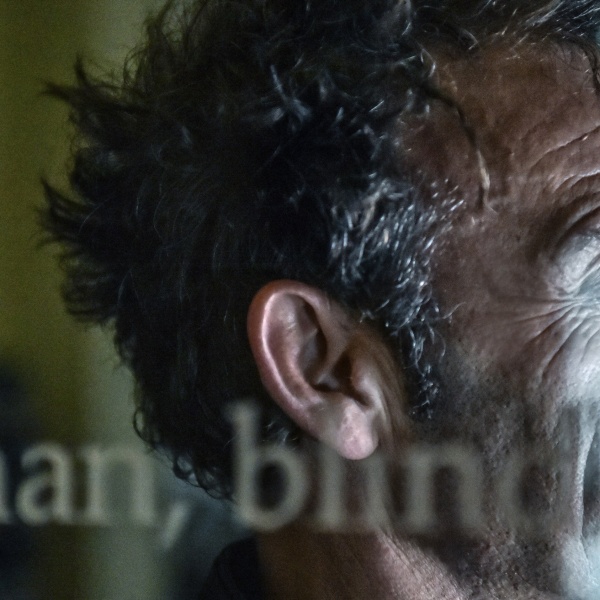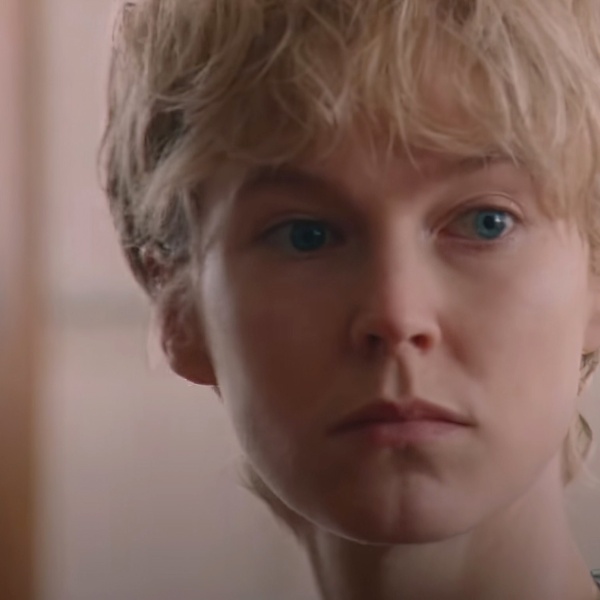
John Wells has had the kind of career most people can only dream about — he’s worked on phenomenally popular television series like “China Beach,” “ER,” and “The West Wing” (he served as the show-runner after creator Aaron Sorkin left the series), while also shepherding more esoteric film projects to the big screen, like Todd Haynes‘ “I’m Not There” and “Far From Heaven,” Mark Romanek‘s “One Hour Photo,” and even John Waters‘ “A Dirty Shame.” (In addition to all of this, he’s the head of the Writer’s Guild of America’s West Coast branch.) But he’s never directed a feature film himself, until “The Company Men,” a drama about the 2008 economic collapse — and the people caught in it — which stars Tommy Lee Jones, Ben Affleck, Craig T. Nelson, Chris Cooper, Kevin Costner and Maria Bello. After a brief Oscar-qualifying run in December, the movie opens wide this weekend. We talked to Wells about the difficulties in making a feelgood film about the recession, what it was like to work with superstar cinematographer Roger Deakins, and how the real-life experiences of people both informed the film and enriched it after its completion.
The Playlist: What made you decide to direct the film?
John Wells: Well, the whole original impetus for it is that this was a story that had happened to my brother-in-law during the dot com bust. He and my sister ended up getting caught up in a large corporate downsizing at the firm, through no fault of his own. And he told me the stories of what had happened to him afterwards in the six or eight months afterwards and all the other kind of things he was doing — out-placements and trying to get jobs and how frustrating it was to be involved in something when you have a huge contraction in the economy and you have lots and lots of people are available at the same time. You know, he had a tremendous amount of experience and great references and a terrific educational background. And that was sort of the impetus for it. Then I started talking to people and pretty much everything that’s in the film came from the anecdotes and stories from people of what had happened to them, including a substantial amount of the dialogue, particularly for the executives within the company — the Craig T. Nelson, Tommy Lee Jones, and Maria Bello characters. They came directly from conversations I had with people.
So you got corporate speak out of those conversations?
Yeah, that and sort of the attitudes towards it. The Craig T. Nelson character spends a lot of the time defending the decisions that he’s making and those were things that people said directly to me. And the Tommy Lee Jones character is based on an amalgam of a couple different men who had made a tremendous amount of money in the sense that their whole company was taken over and they lost the things that mattered to them. So they had made a lot of money but were very conflicted about the idea that they really didn’t get into it for the money, they were happy to have the money but they really enjoyed the company and the people that they worked with. And all that conflict, having let people down and guilt about having done so well when others are being hurt.
Was there ever a conflict to make the film more dramatic but you felt very beholden to the stories that you were told?
Yeah, I think that the biggest difficulty in doing it for me was the desire to make it more melodramatic. There was sense of — How do you make it more of a movie movie? And less of a personal story for what happens to the characters that are in the film. I ended up trying a couple of times to make it more melodramatic and have bigger things happen and I didn’t think it was true to the story that was being told. And so I kept trying and going back and eventually just felt that the piece was really dependent upon on the truth and honest of what was happening to real people, particularly after we got into how deep this recession was and how many millions, tens of millions of people being affected by it. I became concerned of not having it truthful to the concerns and experiences; that audiences would reject it because they knew it wasn’t real.
Did your position as the head of the WGA inform the film at all?
You know, I wasn’t President of the WGA when I directed the film, but I had been involved in it. I would certainly say that it affects the film in the sense that I believe that there is a responsibility between employer and employee to do more than many of the companies have felt they had any responsibility to do. And that’s reflected in my desire to continue to participate in the politics at the Writer’s Guild. You know, we had a kind of social contract in this country that where if you put in a lot of times and a lot of years working for a company and you gave them your loyalty and your hard work that they would look out for your best interests a bit. And that has really fallen apart. And I don’t think that ultimately that’s going to be good for the country, because talented young workers are feeling the first time they have an opportunity to do something else, they jump. Because, if you need a better opportunity then you don’t owe anything to your employer. I think ultimately that’s going to be very difficult for companies, and there is some research recently coming out of Harvard Business School that are saying that it is difficult because people are training workers and then having those workers leave very quickly because they don’t think the company will look out for their interests.
The film seems very vanity free, older actors aren’t given soft lighting or anything. Was that hard for any of the actors?
No, absolutely not, and everybody went into that with the understanding that we were going to shoot that way. And I was very fortunate to get Roger Deakins to be the cinematographer and we had lots of conversations about it. The piece is meant to have a certain kind of quality where you feel like you have stepped into these peoples’ lives. And there’s certainly a cinematic quality and things have been dramatized but we didn’t want to sense anything otherwise while you were watching it. And everyone was very prepared for what that was going to be.
Can you talk about working with Roger Deakins and what his approach was to the movie?
Sure. We had lots of conversations. I was very fortunate that Roger had a lot of time to do prep, so we did a lot of prep together on the film. And the idea was the idea was to go into these lives and these worlds and feel like you were just sitting in the living room with them or in the street or in the office and have there not be any artifice to it. So it’s very naturalistically lit and photographed and he’s such an extraordinary cinematographer that those were really the conversations. Anytime anything started to feel, when we were shooting it, as if it was too staged or that we were having to over-light it, we re-thought what we were doing and moved things around a bit. And that was part of this idea that the film eventually, when you get to the end of it, becomes a bit more hopeful, because you see the light at the end of the tunnel for these guys. And we wanted to sense that there was some place that they had to come from and go to, and that that was all part of the way, visually, you felt the film. So the film opens up a bit when you get towards the end of the film.
Was it hard for him to be so restrained, visually?
No. You know, that’s one of the wonderful things about him is that he knows all the different challenges. So he can do things that are very stylized, like in some of the Coen Brothers films, and things that are really naturalistic. And that’s the mark of someone who’s really, really good.
Did you ever feel that it was a challenge to make a feel-good movie about such a depressing subject?
You know, it’s interesting, because some people feel it’s a feel-good movie and some people feel that it’s not hopeful enough. I tried to just simply take what I heard and learned while doing it, and just dramatize it. Everything that happens in it is stories that I’ve heard from people and what they were trying to do, including what happens at the end. And, you know, what I didn’t want to do was try to make light of or minimize the pain people are going through – the economic pain and what’s going on for lots and lots of families. What we discovered when we tested it was that people came and they stayed. So you would bring in 250/300 people and after the film they had filled out their cards they would want to hang around and talk about the movie. And what they wanted to tell you was their own stories and what had happening to them. One man, you know we asked him what he liked about the film, and most people say, “I liked this actor or that actor.” And this man stood up and said, “I liked the feeling that I’m not alone.” You know, there’s a tremendous amount of shame, no matter what the circumstances, people feel when they lose their job. They can know that it wasn’t their fault, and they still feel that. And it’s a sort of societal bias that we have. So people go through this experience feeling like they’re the only ones going through it. Intellectually, they know there are many other people but emotionally it can feel very lonely. And what really happens, and I heard this over and over in the people that I interviewed, is that they discovered all of these other things about their lives – that as hard as it was, they discovered that there was a community, that their children and wives really didn’t care what they did for a living. We have all these notions, men in particular, that we are defined by what we do and not who we are. And they discovered that there were a lot of good things that came out of it. And I tried to highlight that, as well as the difficulties, that they may not be able to overcome.
So what’s next — are you going to continue with film or go back to television?
You know, I continue to do both. I’m very fortunate and know it, so we have “Southland” back on TNT and we have a new show on Showtime called “Shameless” (also in January) with Bill Macy and Emmy Rossum, so I’ve been doing that. And trying to plan the next thing to direct. It’s starting to look like, and it’s been reported already, that we’re going to do “August: Osage County,” the Pulitzer Prize-winning play, for The Weinstein Company again with Meryl Streep and Julia Roberts. So I hope I continue to be this lucky and am able to do a bit of everything.




